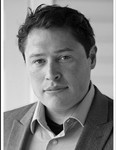
But as informed as I was about my heritage and new ability to “be whatever I wanted to be,” I still grew up mostly unaware of how other Hispanic Americans – especially from South Texas – had bridged the cultural divide and made contributions to the melting pot.
That changed when I learned about the exploits of Sgt. Alfredo Gonzalez during a school field trip.
Alfredo Gonzalez survived a year-long deployment in Vietnam, and was back home when he got word that many of the men he served with during his first tour were killed in an ambush. He quickly volunteered for a second tour, and in May 1967,only three months after returning stateside, the Marine Corps agreed to send him to war for a second time.
Gonzalez would never return to Edinburg, Texas, again.
He was assigned to 1st Battalion 1st Marines, Alpha Co., when the “First of the First” was sent to reinforce other Marine units during the Battle of Hue. Gonzalez led his Marines through the besieged city with distinction. He was injured during the fight, but continued to take the fight to the enemy successfully using anti-tank weapons to destroy North Vietnamese rocket positions and repelling a massive attack.
On Feb. 4, 1968, Gonzalez died from the injuries he received in battle. His selfless actions and courage in Hue would later be recognized a year later when his mother was presented her son’s Medal of Honor.
More than 40 years after his death, Gonzalez is still remembered with honor and his selflessness remains a point of pride for the Hispanic American community in South Texas. Growing up in Edinburg, where there is a main road, a park and a school named after him, I learned about his sacrifice before I really knew what the Vietnam War was or what serving in the military meant.
To this day, I am as proud to be from Gonzalez’ hometown as I am of my own service in the Marine Corps.
Instilling that sense of pride is exactly why it’s so important to recognize the contributions of the Hispanic American community in this country. Hispanic Heritage Month provides our young people with positive examples of service and ingenuity from their community.
This is especially true when it comes to our history of military service, which goes back to the Revolutionary War. Our mark on the United States is complex, and servicemembers like David Farragut, Marcario Garcia, Roy Benavides, Silvestre Herrera, and every Hispanic American who continues to wear the uniform today proves that.
I recently found Sgt. Gonzalez’ name on panel 37E, line 21, of the Vietnam Memorial here in Washington, D.C. I pointed it out to my five-year-old son and explained his importance to us. He’s too young to fully understand the real sacrifice Gonzalez made, but my son does know it was extraordinary.
Topics in this story
More Stories
The Social Security Administration is hoping to make applying for Supplemental Security Income (SSI) a whole lot easier, announcing it will start offering online, streamlined applications for some applicants.
Yusuf Henriques, an Army Veteran and former combat medic, is the founder and CEO of IndyGeneUS AI, a genomics company on a mission to improve health equity by increasing representation of women and racial minorities in clinical trials.
Online shopping scams are the riskiest scam for Veterans, with 77.3% of reports confirmed losing money when targeted by this scam.









Vietnam changed America, Americans and the American Armed Forces for good. Dr. Carlos Chavez, Portage. Indiana, USA. Black, Brown and White.
I AM A HISPANIC AMERICAN AN SERVED IN VIETNAM DURING , 1968 – 1970 , BROWN WATER , NAVY FOR MY COUNTY , THEN I SERVED , ANOTHER 35 YEARS , TOTAL , I AM A DISABLED VETERAN OF 4 WARS , AM VERY PROUND , TO HAVE SERVED FOR MY COUNTY AS AN AMERICAN HISPANIC